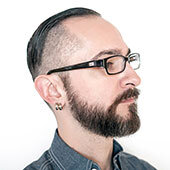Learning from Your Mistakes
We all make mistakes. “To err is human,” as Alexander Pope wrote. But there are just two ways to respond to a misstep: we either process and learn from our error and evolve, or we let the opportunity to learn slip by and periodically repeat the same error.
Having a focus on improvement and being mindful of your evolution is all about growth.
Utilizing Your Gifts
Sometimes, it feels good to take care of a straightforward, even commonplace task, chore, or project. We all have a lot to do, so checking items off our to-do list—whether metaphorical or literal—can be fulfilling in and of itself.
At other times, being tested by a more challenging project or endeavor satiates us at a deeper level—for example, running a marathon, building a piece of furniture, or putting together a complex puzzle.
In such cases, you appreciate leveraging your gifts and push yourself to employ them fully. This is all about meeting challenges.
Giving Back to the Community
The oxytocin boost we get from doing things such as volunteering our time to causes that are important to us is natural—giving back feels good.
If you’ve always made a point of looking beyond yourself, doing your part to better other people’s—and the world’s—condition, this is all about making a difference.
Defining What Matters Most
When you’re looking for a best-fit role—for both you and your work—it is essential to be crystal clear on just what are your most important values. Therefore, it is vital that you be able to prioritize them. In the context of a design project, this lets you get a clear sense of not only the must-haves for that design work but also for your given role, your organization, and the process by which you create.
Sometimes, your work satisfies certain values more than others, making it even more imperative that you weigh what you really need versus what you could potentially function without—or at least in a diminished capacity.
For example, would you want to take on design work that made the user’s workflow more intuitive—because the solution would be strong on empathy and connection—but is part a larger SaaS product whose development is driven by capitalistic goals, but not so much on making a difference?
If you’re unclear about your most important values, you might take on work or roles that, over time, disconnect you from your career. (The tale of my earlier work with a Web-hosting company fits that notion.) So take some you time to think through which of your values have been most fulfilling to you over the course of your life—both personal and professional.
Prioritization Begets Fulfillment
We’ve all likely been part of a forced ranking–workshop exercise at some point during our career. When these exercises take place in a group setting, they usually revolve around concepts or themes on a whiteboard, with the people in the room assigning priority to each of them by putting a star or a dot next to them—at either one end of a spectrum or the other.
At the end of the exercise, the group can see which concepts have the most stars or dots at the important end, which yields a broad consensus on which are the most important things—whether for the environment, people, project, or business.
What this does is create a distinct order of priority or plan of attack for what to work on first—for example, what features of a minimum viable product (MVP). Take on the spirit of this exercise as a solo initiative and prioritize your values. You know your values best and can force a ranking on them.
Give each of your values a score, depending on how intensely fulfilled you have felt by leveraging that value over the years through a variety of experiences. Forced ranking is never an easy exercise—whether on your own or in a workshop setting. So go easy on yourself as you work through your analysis.
The beautiful thing is that you can then leverage your prioritized values in so many different ways—for example:
- deciding which questions to ask during your next job interview
- serving as an objective gut-check when you feel your connection to your work is waning
- determining whether the business that employs you is operating ethically, in unison with what’s most important to you
Your personal values are your North Star throughout your career. They are always your best guide to finding fulfillment by doing your best work. As you grow through your life and career, you can extend these values to everything you do. 

